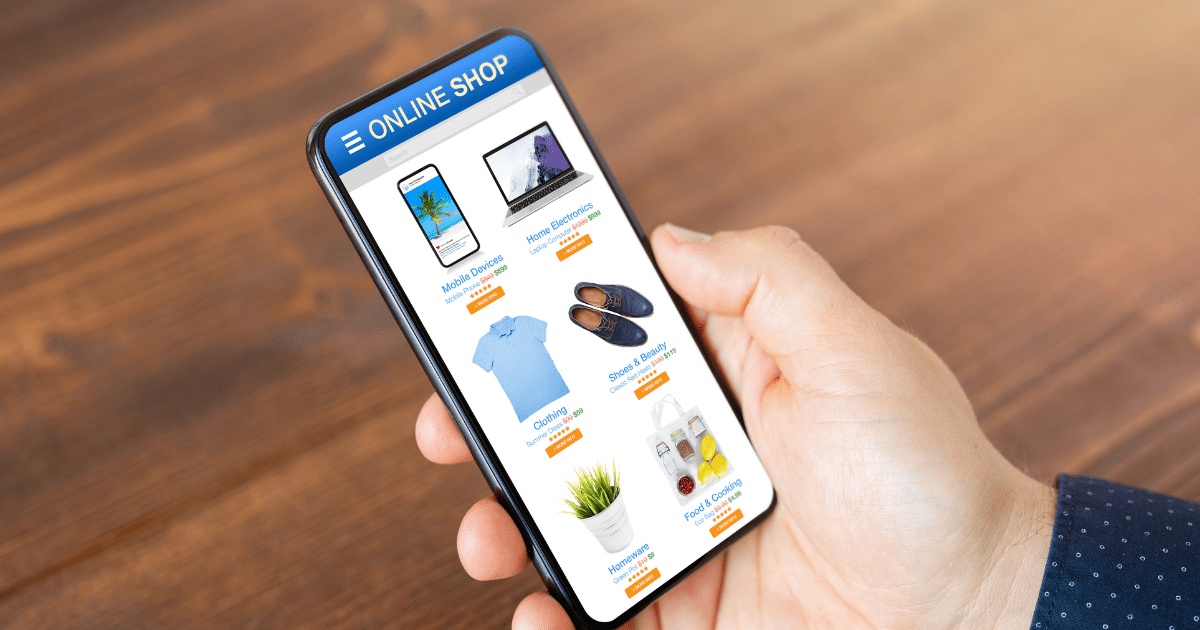
Cellular mobile connections number 118.6 million in South Africa. This is a massive number, and as an online seller, it’s an enormous business opportunity.
If you sell online, then you need to take mobile commerce seriously. Let’s explore what exactly this is and how it’s impacting SMEs right now.
What is Mobile Commerce?
Mobile commerce, often shortened to m-commerce, is simply buying and selling stuff using your mobile phone or tablet. It’s when e-commerce stores specifically focus on ways to sell to customers through their mobile devices.
You can shop online, pay for things, and sell your products or services – all from your mobile device. It’s super convenient because you can do it anytime, anywhere, as long as you have an internet connection.
What Mobile Commerce Means for SMEs
As a small business owner in South Africa, the rise of mobile commerce popularity and opportunities can offer some exciting things for your business.
Mobile Penetration Rates
South Africa boasts high mobile penetration rates, with a large portion of the population accessing the internet mainly through their smartphones. This presents SMEs with a vast potential customer base reachable through mobile shopping.
With the rise of m-commerce, online stores can reach far more customers than they could with traditional e-commerce.
Changing Consumer Behaviour
Consumers in South Africa are increasingly turning to mobile devices for shopping, banking, and accessing services.
SMEs need to adapt to this shift by ensuring their businesses have a strong mobile presence, including mobile-friendly websites and apps. By making your business more mobile-friendly, you should be able to tap into a far larger market.
Opportunities for Market Reach
M-commerce allows SMEs to reach customers beyond traditional brick-and-mortar boundaries.
Businesses can engage with customers in remote areas through mobile platforms, expanding their market reach and driving up sales opportunities.
Convenience and Accessibility
One of the key drivers of mobile commerce is its convenience. SMEs can leverage this by offering easy-to-use mobile interfaces for browsing, purchasing, and customer support, which improves the overall shopping experience.
So not only does optimising for mobile commerce mean your business can reach more customers, but it also means you can offer these customers a better experience.
Payment Solutions
In South Africa, mobile payment solutions are gaining traction, enabling secure and convenient transactions.
SMEs should explore integrating mobile payment options into their platforms to cater to the preferences of mobile-first consumers. By making payment options more accessible, you’re making it easier for more customers to shop at your business.
Data-Driven Insights
M-commerce platforms generate vast amounts of data on customer behaviour and preferences.
SMEs can use this data to gain valuable insights into their target market, enabling them to tailor their products and marketing strategies effectively.
Competition and Differentiation
With the rise of m-commerce, competition among SMEs has intensified. To stand out in the crowded marketplace, businesses need to offer unique value propositions, personalized experiences, and superior customer service through their mobile channels.
While standing out can be tricky, the greater opportunities that mobile commerce opens up also means businesses have more room to differentiate themselves from the competition.
Digital Marketing Strategies
Mobile commerce is closely intertwined with digital marketing – this is a massive part of what sets mobile commerce apart from regular e-commerce.
SMEs should invest in targeted mobile advertising, mobile search engine optimization (SEO), and social media marketing to increase visibility and drive traffic to their mobile platforms.
Of course, this should focus on mobile-specific marketing strategies. For example, social media platforms now have integrated e-commerce features allowing users to make purchases directly from the apps. This is a great thing to focus on to increase mobile commerce activity.
Ensuring your site and shopping experience are properly optimised for mobile is the most essential part of m-commerce digital marketing.
Adaptability and Innovation
The landscape of m-commerce is constantly evolving with new advancements in technology and changing consumer preferences. SMEs need to stay agile and innovative, continuously adapting their strategies to remain competitive in the dynamic mobile marketplace.
If you’re focused on mobile commerce, make sure you’re always staying up-to-date with the latest trends and innovations. Tech and customer habits move fast, but keeping up with them can help you access greater opportunities.
You can’t run an online store these days if it’s not properly optimised for mobile. However, mobile commerce should take this further by looking into ways to make mobile shopping experiences even more accessible.
By focusing on mobile commerce and understanding its potential, small businesses in South Africa face major opportunities for reaching more customers online.














